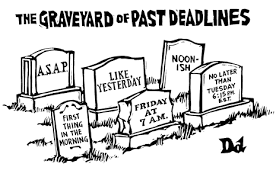
More than forty years later, the analogy often still holds true in many of our schools and school systems. They are still primarily built on a mass production, standardization, model. They start with the proscribed curriculum and learners are asked to adapt to it as best they can. Students enter, are delivered a programme designed to meet the learning style of the mainstream, and then exit - more or less successfully - to move on to the next stage in their educational lives. It is an assembly line system, softened only by the professionalism of the people delivering it. Replicated in community after community, it is the McDonalds of education. Now, in fairness, not all schools or even school districts conform to this model. There are lighthouses where flexibility and individual student needs trump the constraints of textbooks and exams. But it takes vision and leadership to break these bonds in a culture that often demands a standardization of approach. These systemic expectations may be driven by rigidly constraining working conditions agreements (think "class size and composition"), by budget priorities, or by public perceptions and political expediencies that are driven by the results on high-stakes tests.
Whatever the reason, what should be a universal design for learning to meet the needs of all learners has been flipped on its head to mean "one size fits all" schooling and equity in educational opportunity, has been replaced by equal access to programmes, but not learning.
We are fortunate as a small, independent option to be free of many of these constraints. By contrast, what we try to offer is based on a mass customization model. This is the essence of creating a path to inclusion through applying the principles of Universal Design for Learning. Although the wide variety of structures, supports, teaching/learning approaches etc. are accessible to all learners, there is no question but that at the end of the day we are delivering individual programmes for each and every student. Our slogan could maybe be taken not from McDonalds, but from Burger King - you know - "Have it your way!" It is our on-going mission to differentiate the learning experience for each individual child and young adult and to help them to find their personal pathways to success.
Last Friday our staff spent the better part of the day working on IEPs. When you apply the principles and best practices of Universal Design to create a welcoming and varied learning environment for everyone, the fine tuning for each individual student becomes just that much easier!



 RSS Feed
RSS Feed
